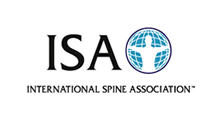
Spine Disorders
|
TREATMENT If a synovial cyst is not
causing symptoms, treatment is usually not nessecary. Follow up care and
observation is appropriate. If a patient experiences mild symptoms such as
local discomfort, the initial phase of care should include restriction of those
activities and positions which are the most uncomfortable. Other forms of
non-operative care which may be effective include; the use of chiropractic
care, physical therapy, anti-inflammatory medications, pain relief medications,
selective injections, and the temporary use of spinal bracing. If the pain is
severe, chronic, and/or interferes with individuals activities of daily living
(ADLs), surgery may be necessary. The surgical approach
usually involves microscopic decompression and excision of the synovial cyst.
These procedures can usually be performed using minimally invasive approaches
that have a relatively short recovery time. Sometimes synovial cysts will
re-occur. Another surgical option is to remove the cyst and fuse the adjacent
spinal segments to reduce the risk for reoccurrence. This is a more invasive
procedure associated with a great change for complications and a longer
recovery time. Since every case is different, you should seek consultation with
one or more experienced spine specialists. PREVENTION There is no
known way of specifically preventing the development of a spinal facet cyst.
The best method for preventing the development of a facet cyst is to reduce the
risk for back injury and to avoid injurious loads and stress upon the spine. The best
way to prevent neck and back pain and to prevent progressive spine compromise
is to become familiar with how your spine works and to become an active
participant in your spinecare. It is important to learn how to choose a
spinecare specialist and to recognize an efficient spinecare team. There are
many steps you can take and habits you can develop to better care for your
spine and prevent spine injury. It is also important that you learn more about
your spine disorder and become aware of the signs and symptoms that warrant
intervention and follow up care. Early detection and timely intervention is
generally associated with better treatment outcome. |
















